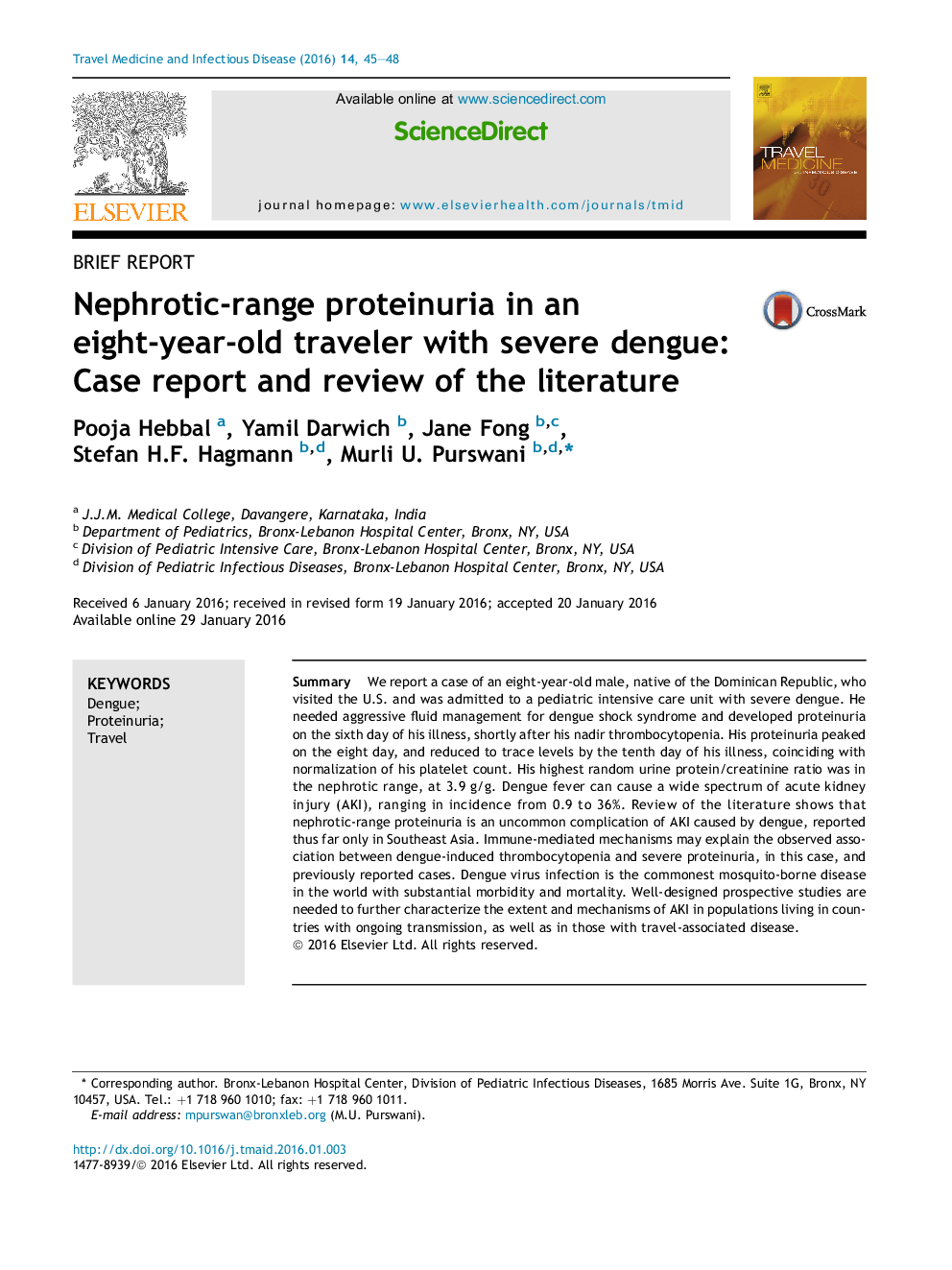| Article ID | Journal | Published Year | Pages | File Type |
|---|---|---|---|---|
| 3392824 | Travel Medicine and Infectious Disease | 2016 | 4 Pages |
SummaryWe report a case of an eight-year-old male, native of the Dominican Republic, who visited the U.S. and was admitted to a pediatric intensive care unit with severe dengue. He needed aggressive fluid management for dengue shock syndrome and developed proteinuria on the sixth day of his illness, shortly after his nadir thrombocytopenia. His proteinuria peaked on the eight day, and reduced to trace levels by the tenth day of his illness, coinciding with normalization of his platelet count. His highest random urine protein/creatinine ratio was in the nephrotic range, at 3.9 g/g. Dengue fever can cause a wide spectrum of acute kidney injury (AKI), ranging in incidence from 0.9 to 36%. Review of the literature shows that nephrotic-range proteinuria is an uncommon complication of AKI caused by dengue, reported thus far only in Southeast Asia. Immune-mediated mechanisms may explain the observed association between dengue-induced thrombocytopenia and severe proteinuria, in this case, and previously reported cases. Dengue virus infection is the commonest mosquito-borne disease in the world with substantial morbidity and mortality. Well-designed prospective studies are needed to further characterize the extent and mechanisms of AKI in populations living in countries with ongoing transmission, as well as in those with travel-associated disease.
